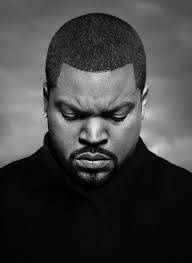Dear Cube,
I watched your interview with Roland Martin. You explained your 'Contract with Black America' document was created after you witnessed the horrific murder on camera of George Floyd. I don’t write to you about policy, hip hop, the Contract With Black America – I write to you about Emotional Justice.
Clearly, this was not about a contract, policy, or Black America. This was Emotionality masquerading as Policy. This was about who you became as a man watching a brother be tortured and killed in front of your very eyes. Who did you become as you watched, and what did it reduce you to in the aftermath when you closed your eyes? Like millions, this may have felt literally - and symbolically - like 500 years of trauma and systemic brutality rushed into 8 mins 46 secs, at high speed and in slow motion. The humiliation, degradation, pain, powerlessness was all manifest in this black man's body - and perhaps your black man's body - in that 8 mins 46 secs. You don’t fix that by creating a document that is about your masculinity and not policy for African-Americans.Articles have been written exploring this. One example by Scott Woods compares and explores the deal with references and explanations of poker vs chess. Neither is valid. We need not litigate a 30-year-career, or analyze the details of the deal, which Roland Martin’s journalism revealed was full of holes, made little sense, lacked the depth and breadth and policy knowledge required, and had been replicated by others more thorough work But that is my point, that was not Ice Cube’s point. What we must do is recognize what we are looking at, and call it by its actual name, not attach one that does not reflect the complicated reality of an emotionality wrapped in a broken masculinity living with the horror of a dying man’s cry for his mama. Maybe O’Shea Jackson died watching Mr. Floyd die, and Ice Cube took to his keyboard, engaged his platform to resurrect a masculinity and restore that powerlessness. It cannot work. It does not work.
We are in a life-threatening election with global repercussions. Black women around the world at this point have interrupted that work to engage, tend to, soothe and explore these wounds you - and so many other brothers - have. That emotional labor is also 500 years old and counting. It takes a toll. It is unloving, unjust, painful and harmful. It is expected of black women towards black men again and again.
To navigate an emotionality masquerading as policy has been energy expended by and emotional labor expected of black women for so long, for too long. But it can’t continue. There cannot be this ongoing path where black women interrupt their work, their day, their grind, their lives, and their fight for our future to tend to the publicly manifest wounds and wounding of a single black man and all those brothers who support him, feel for him, feel like him - but won't name their fear or their feeling, but instead wrap it in accusation or attacks. That too is Emotionality masquerading as policy. It must be named, so it can be accurately dealt with. It doesn’t require CwBA, 45 minutes on TV with Roland Martin, or a further 8 mins on CNN – none can fix what is broken. Your crushed soul within a crushed body, under the weight of a knee killing your manhood is never fixed by a ‘Contract with Black America’. Name it in order to deal with it, but deal with it you must. 'You' meaning so many brothers as well as O’Shea - because there can be no emotional justice without the equal division of emotional labor.
This is about the intimate reckoning of emotional patriarchy - that system where society caters to the feelings, fears, hurts, wounds of men no matter the cost or consequence to society, to women. Emotional Patriarchy is part of ‘emotional justice’ – a framework that grapples with how a legacy of untreated trauma due to global history shapes how we lead, learn, love and work, shapes our relationship to ourselves and each other.
This issue, though, has been a distraction for too long, taken too many words by too many folks. We move on, we fight on.
In love and emotional justice,
Esther

Esther Armah is Executive Director of The Armah Institute of Emotional Justice (AIEJ). This global institute provides emotionality education in the context of race, gender, culture via the Emotional Justice framework through Projects, Training, Thought Leadership globally working across Accra, New York, London.
Website: www.theaiej.com

